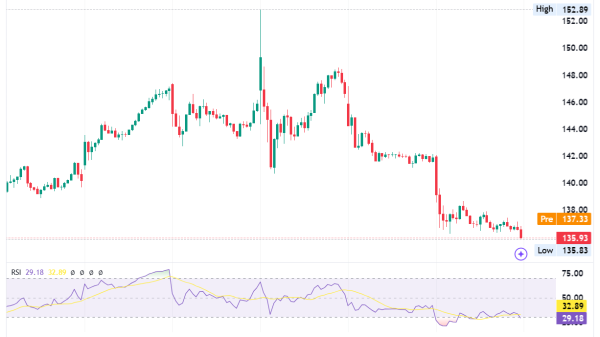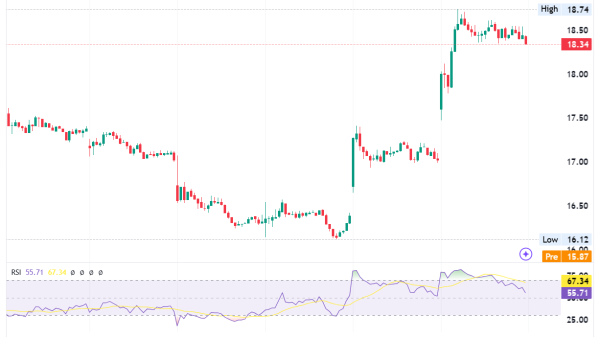What Is the Stock Market?
The stock market, often envisioned as the backbone of the financial world, is not just a physical space but a complex network where shares of publicly traded companies are bought and sold. It serves as a crucial barometer for the economy’s health and a vital avenue for businesses to raise capital. This article explores the various facets of the stock market, elucidating its structure, operations, and significance.
The term “stock market” refers to the aggregate of markets and exchanges where regular activities of buying, selling, and issuance of shares of publicly-held companies take place. Contrary to popular belief, the stock market extends beyond physical exchanges to digital trading platforms that connect buyers and sellers worldwide.
The Role of the Stock Market in the Economy
The stock market is pivotal for economic development as it provides companies with access to capital in exchange for giving investors a slice of ownership in the company. This dynamic not only aids businesses in funding expansion but also offers individuals and institutions the opportunity to gain from the company’s growth through capital gains and dividends.
Public Companies and Initial Public Offerings (IPOs)
Not all companies are eligible to sell their shares on the stock market. Only those that have gone public through an Initial Public Offering (IPO) can participate. An IPO marks the transition from a private entity to a public one, making shares available to the general public and subjecting the company to strict regulatory scrutiny and greater transparency.
Primary and Secondary Markets
The primary market refers to the initial transaction phase, where shares are sold directly by the company to investors, typically through an IPO. After this initial sale, shares enter the secondary market, where they are traded among investors without the direct involvement of the company that issued the shares. Stock exchanges and over-the-counter (OTC) markets facilitate the trades.
The Anatomy of Stock Exchanges
Stock exchanges are organized venues that provide the facilities necessary for trading shares. The New York Stock Exchange (NYSE) and Nasdaq are two of the most well-known stock exchanges in the U.S., each with its own set of rules and operational guidelines.
Function and Importance of Stock Exchanges
Stock exchanges streamline the process of buying and selling stocks, ensuring transparency and fairness in transactions. They provide a regulated environment where investors can gain confidence in the financial integrity of the securities traded.
Types of Stocks and Market Participants
We can split stocks into two categories, common and preferred shares, with each type offering different rights and benefits to investors. Common shareholders typically have voting rights and receive dividends, whereas preferred shareholders enjoy priority in dividend payments but may not have voting rights.
Institutional and Retail Investors
Market participants include both institutional investors, such as pension funds and mutual funds, and retail investors, who are individual traders and investors. The strategies and financial instruments utilized can vary widely between these two groups, reflecting their different risk tolerances and investment horizons.
Trading Securities: Beyond Just Stocks
While stocks are a primary focus, the stock market also facilitates the trading of other securities like bonds, mutual funds, exchange-traded funds (ETFs), and derivatives such as options and futures. Each of these plays a unique role in investment strategies and portfolio management.
Over-the-Counter Trading
OTC trading involves securities not listed on formal exchanges, typically because they do not meet the listing criteria. This form of trading can be riskier due to less regulation and transparency.
The Role of Brokers and Online Trading Platforms
Brokers act as intermediaries between buyers and sellers in the stock market. They may offer various services ranging from basic trade execution to comprehensive financial advice and portfolio management. The rise of online brokers and trading platforms has significantly democratized access to the stock markets, allowing for more direct and cost-effective trading.
Regulation and Oversight
The stock market operates under strict regulatory oversight to prevent fraud, promote transparency, and maintain fair trading practices.
In the U.S., the (SEC) and the Financial Industry Regulatory Authority (FINRA) are key regulatory bodies that ensure the market’s integrity.
The stock market is a critical component of the global financial landscape. It facilitates economic growth and allows individuals and institutions to invest in public enterprises. Understanding its structure and functions can provide valuable insights into the broader economic and financial context. Also guiding better investment decisions and financial strategies. The stock market is essential for navigating the investing world with confidence and insight.
How Stock Prices are Determined
Understanding the mechanics behind stock pricing is crucial for investors, traders, and anyone with a stake in the financial markets. This article will delve into the various aspects and factors that influence stock prices. It will offer a comprehensive look at how prices are set and what implications they have for the broader market.
Introduction to Stock Price Formation
Stock prices are the result of a myriad of interactions within the market. The textbook description begins with buyers and sellers agreeing on a price. However, in reality, most investors encounter stock prices via online brokerage accounts or financial charts. However, every transaction indeed results from an agreement between a willing buyer and a willing seller, each influenced by various market conditions and personal strategies.
Fundamental Factors
Fundamental factors are closely tied to the financial health and operational performance of a company. These include:
Earnings and Profitability: Companies with high profitability and growing earnings are generally seen as more valuable.
Sector and Industry Performance: The overall health of the industry a company belongs to can significantly affect its stock price.
Dividends and Share Repurchases: Actions like issuing dividends and buying back shares can influence investor perception and, thus, stock prices.
Technical Factors
Technical factors involve market-based metrics and behaviours, including:
Market Sentiment: The general mood or attitude of investors towards the market or a particular stock.
Historical Price Trends: Analysis of past price movements to predict future behaviour.
Volume and Volatility: High trading volumes and volatility can indicate interest and instability, respectively, which impact prices.
The Role of Market Indexes
Market indexes like the Dow Jones Industrial Average and the S&P 500 provide snapshots of market trends and are essential for understanding market movements. They serve as benchmarks for individual portfolios and give a broader view of the economic landscape.
Functions of the Stock Market
The stock market serves multiple vital functions in the economy:
Corporate Governance: Public companies must adhere to strict reporting standards, enhancing transparency.
Economic Indicator: Stock market trends can reflect the overall health of an economy.
Investment Opportunities: The market provides a platform for growing personal and institutional wealth.
Liquidity and Raising Capital: It allows for the quick buying and selling of securities and helps companies raise funds by issuing stocks.
Resource Allocation: The stock market directs capital to the most promising sectors.
Importance of the Stock Market in Modern Economy
The stock market plays a critical role in shaping economic outcomes by influencing corporate decisions, impacting public services through investment returns on pensions, and driving economic growth through wealth creation.
Comparing the Stock and Bond Markets
While both markets are crucial for finance, they serve different purposes:
Stock Market: Offers ownership in companies with the potential for high returns.
Bond Market: Involves lending money to entities in exchange for fixed income, generally with lower risk than stocks.
Alternative Trading Systems
Alternative trading systems (ATS) provide platforms for trading large volumes of securities. These are less regulated than public stock exchanges and include dark pools and certain cryptocurrency exchanges.
Key Players in Stock Trading
The stock market ecosystem includes:
Stockbrokers and Portfolio Managers: They facilitate buying and selling on exchanges and manage client investments.
Investment Bankers: They assist companies in going public, issuing bonds, and facilitating mergers and acquisitions.
Understanding how stock prices are determined involves a blend of economic, financial, and market knowledge. The interplay of fundamental and technical factors, along with the critical roles of various market participants and platforms, creates a dynamic environment where stock prices are continually negotiated and adjusted. This complexity makes the stock market an essential yet challenging component of the global economy, influencing everything from individual wealth to international economic policies.
The Biggest Stock Market Crash of All Time: Black Monday 1987
Although infrequent, the phenomenon of stock market crashes represents critical moments in financial history that significantly impact economies and investors.
Overview of Black Monday
Black Monday, October 19, 1987, stands as the most severe stock market crash recorded in a single day. On this day, the Dow Jones Industrial Average (DJIA) plummeted by 22.6%, marking an unprecedented drop in the value of stocks in the United States and worldwide. The magnitude of this crash overshadowed any other single-day market declines before it or since, earning it a notorious place in financial history.
Understanding the Impact
The crash of 1987 was startling not only for its depth but for the speed with which it occurred. It resulted in enormous financial losses for investors and affected market regulations and trading practices. The event triggered a reevaluation of risk management and the implementation of mechanisms such as trading curbs, known as “circuit breakers,” designed to prevent such extreme losses in the future.
Reflection on Market Crashes
Black Monday remains the most significant crash in terms of single-day losses. However, it is a stark reminder of the inherent risks in stock market investing. It underscores the importance of risk management strategies, including diversification across different asset classes and implementing safeguards against financial volatility. Investors and regulators alike continue to learn from these episodes, improving the resilience of financial markets against future shocks.
The post What Is the Stock Market? appeared first on FinanceBrokerage.




























